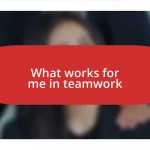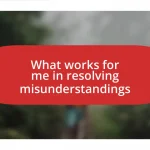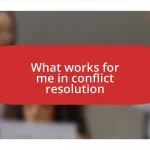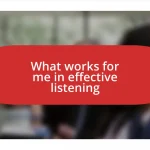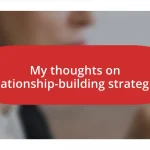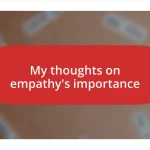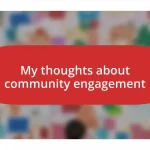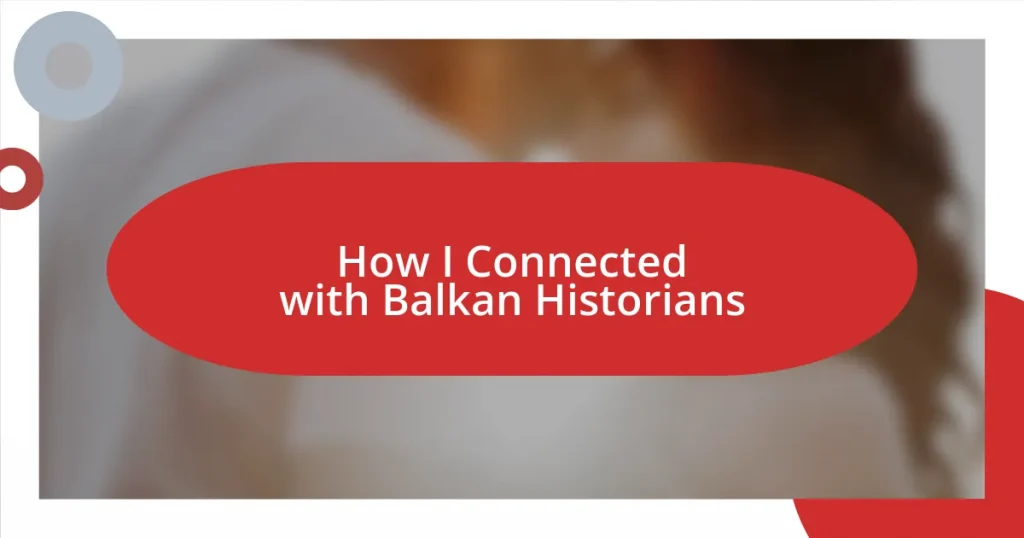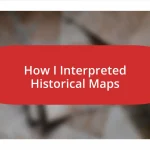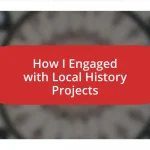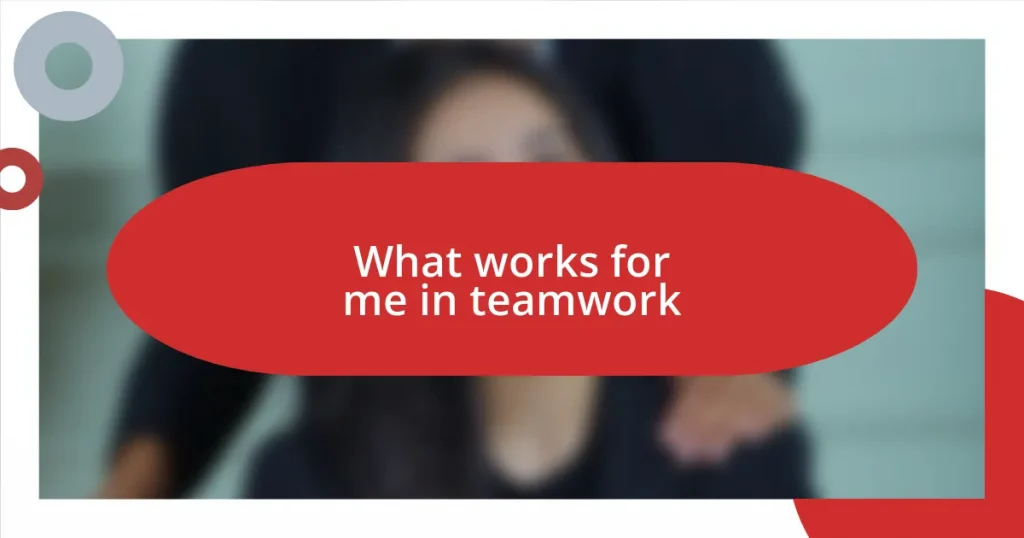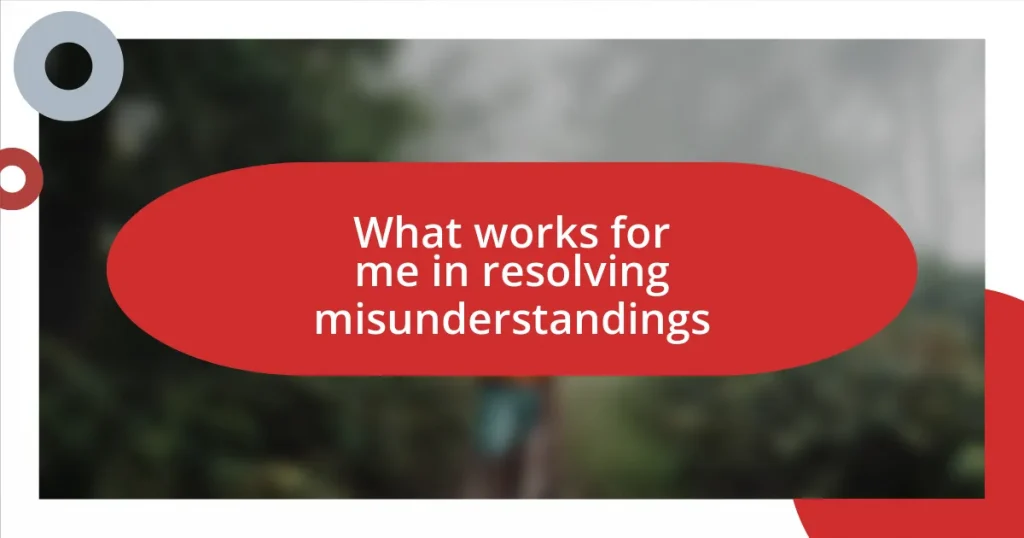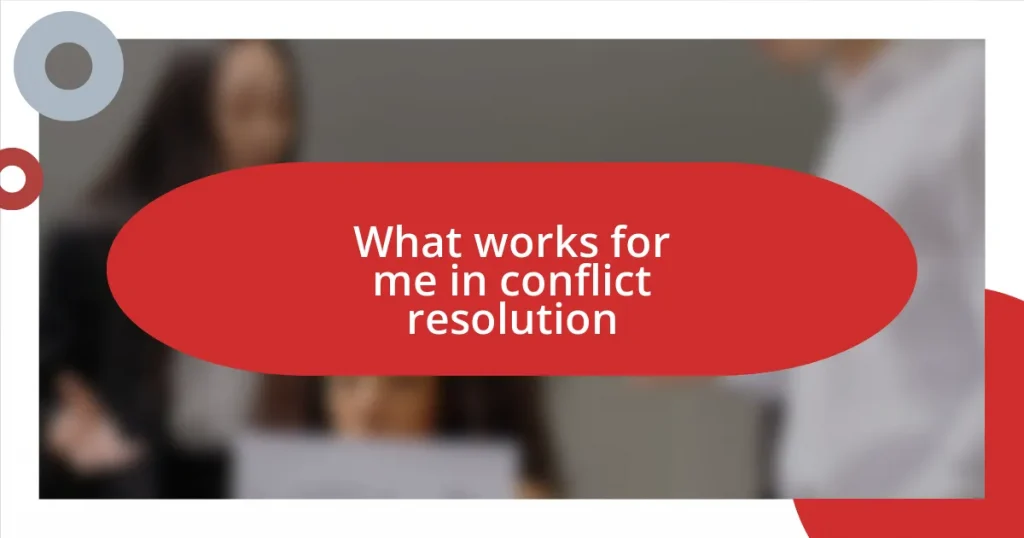Key takeaways:
- Discovering the passion and dedication of Balkan historians deeply resonated, highlighting the personal connection to history.
- Engaging in academic networking and collaborative research projects provided valuable insights and fostered a sense of community among scholars.
- Attending conferences offered transformative experiences that linked personal narratives to broader historical discussions.
- Utilizing online resources and platforms enhanced research endeavors, allowing for deeper connections and collaborative opportunities in the study of Balkan history.
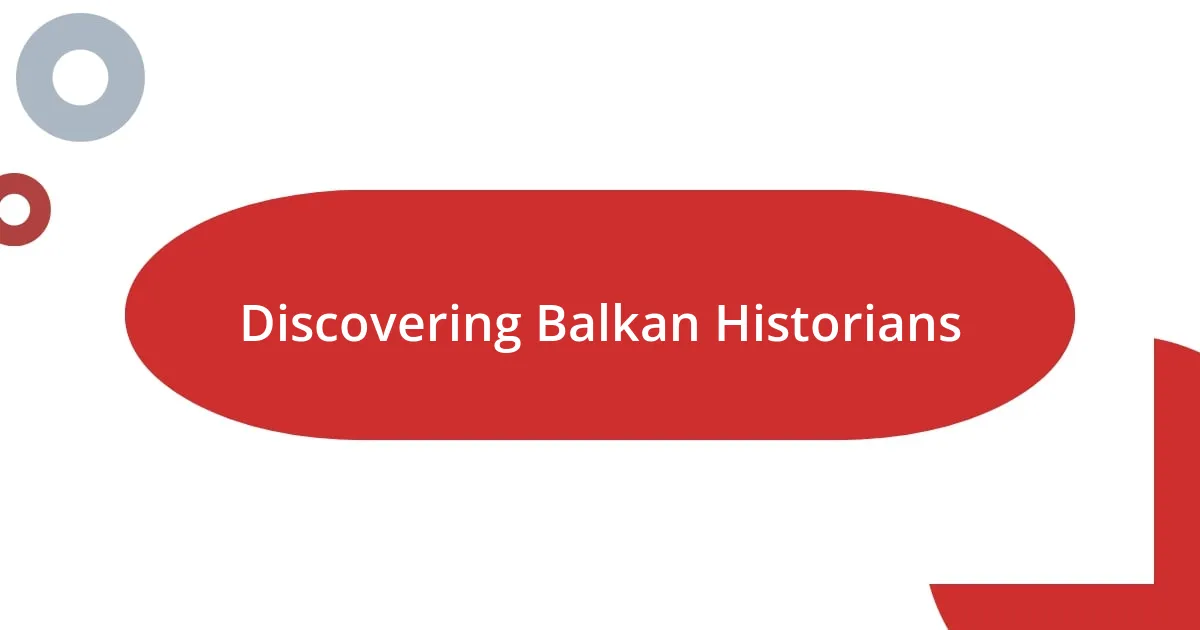
Discovering Balkan Historians
As I began my journey into East European studies, I stumbled upon the works of numerous Balkan historians whose insights were both enlightening and captivating. I remember reading a book by a historian who articulated the struggles of the region with such passion that I felt a deep connection, almost as if I were retracing the footsteps of their narratives. Have you ever felt that moment when words leap off the page and pull you into a different world?
One particularly striking moment for me was when I attended a lecture by a renowned Balkan historian. The way they spoke about the intricate tapestry of cultures and histories in the Balkans ignited my curiosity. I could sense their dedication and love for their heritage, and it made me wonder—how many hidden stories lie beneath the surface of our own communities?
Delving into online forums and academic journals, I discovered a multitude of voices sharing personal stories and scholarly insights. Each historian brought their own perspective and emotional weight to the dialogue. I often found myself asking, what drives them to research these complex histories? Their answers offered a mix of personal passion and a hope to promote understanding—making the journey of discovering Balkan historians not just an academic pursuit, but a deeply personal one as well.
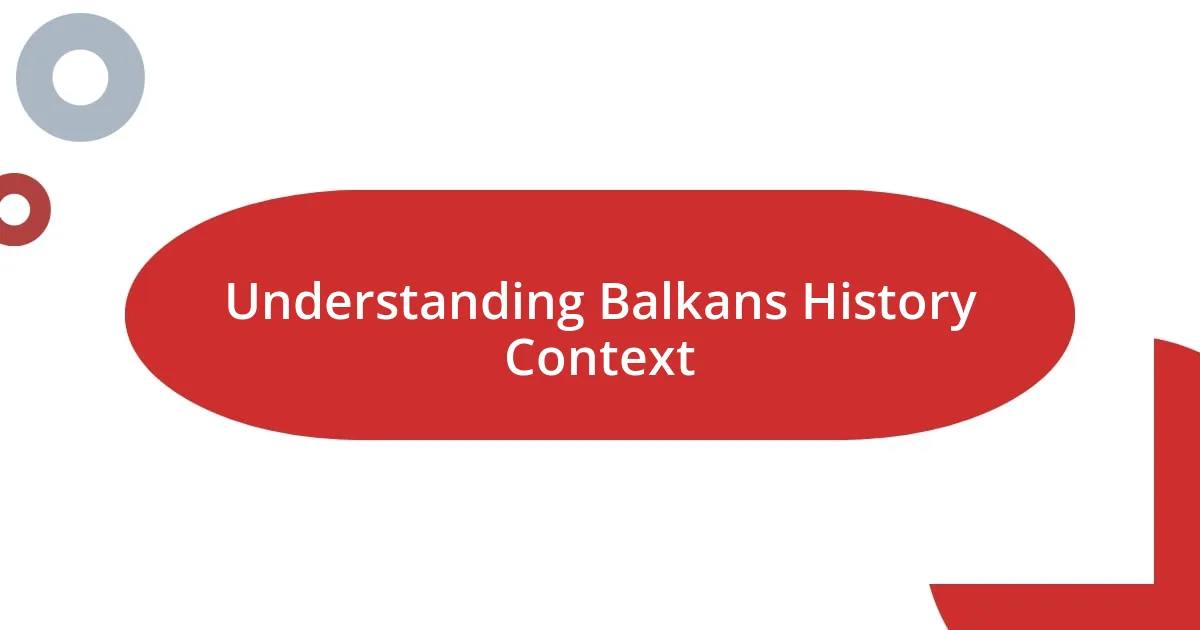
Understanding Balkans History Context
Understanding the context of Balkan history requires a willingness to embrace its complexities. I recall listening to a lecture where the historian discussed the legacy of Ottoman influence across the region. The intertwining of cultures not only shaped the slogans and songs of the people but also created a rich tapestry of shared experiences that I found profoundly moving. Have you ever considered how history can resonate in everyday life?
At one point, I dived into the relationship between nationalism and identity in the Balkans. It was eye-opening to see the deep-seated emotions that accompanied territorial disputes and cultural pride. I often wondered how individuals cope with the weight of such legacies. Listening to firsthand accounts from locals made me realize that these histories aren’t just stories; they are living narratives shaped by personal and collective trauma, ultimately fostering resilience.
Moreover, I became fascinated by the dual nature of historical narratives—how they can be both unifying and divisive. In my conversations with historians, it became clear that their role extends beyond teaching accepted events; they aim to bridge divides by promoting a holistic understanding of history. I can honestly say that this pursuit of awareness ignited something within me. Isn’t it remarkable how historical dialogue can facilitate personal and communal healing?
| Key Aspects | Examples and Observations |
|---|---|
| Ottoman Influence | Cultural intermingling shaping modern identity |
| Nationalism | Emotional narratives behind territorial disputes |
| Dual Nature of History | Healing vs. Division in historical narratives |
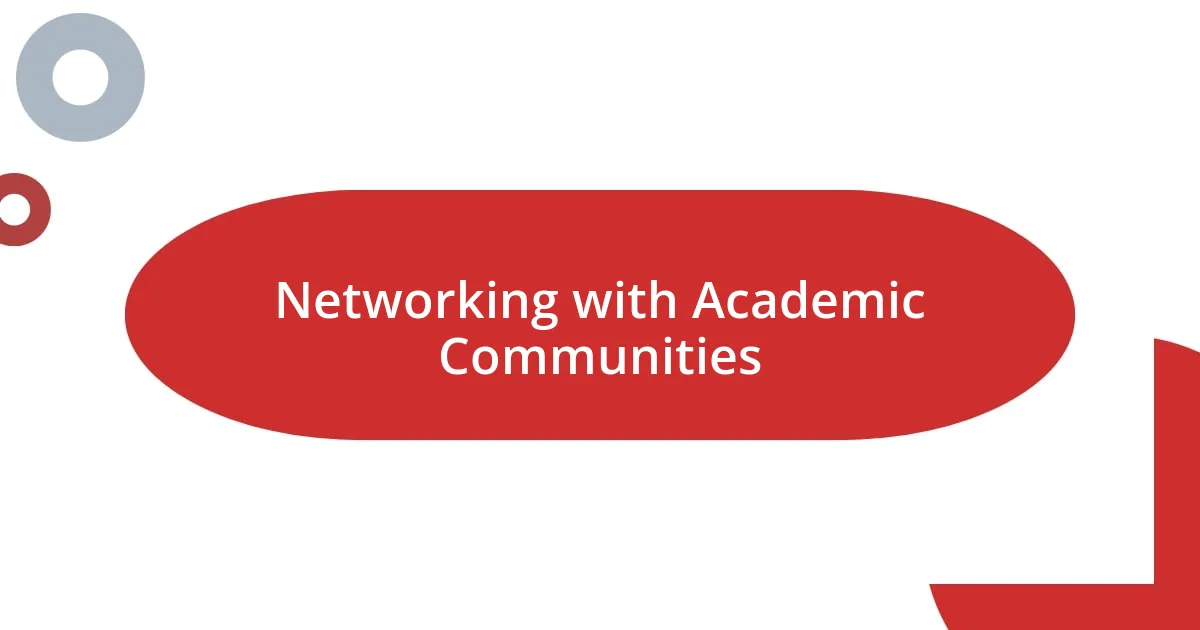
Networking with Academic Communities
Connecting with academic communities has been a transformative experience for me. I remember my excitement when I joined an online seminar focusing on Balkan studies. Engaging with historians and fellow students in discussions felt like stepping into a vibrant new world filled with diverse opinions. The melting pot of ideas truly showcased how powerful networking can be.
- Attended collaborative workshops that encouraged sharing research methods and experiences.
- Engaged in spirited debates in online forums, which deepened my understanding of various perspectives.
- Received personal feedback from seasoned historians that helped refine my approach to research.
These exchanges not only broadened my intellectual horizons, but they also made me feel part of a larger scholarly community. I found that having conversations with historians often led to unexpected insights. During one memorable discussion, a historian shared their childhood experiences in the Balkans, revealing how personal history intertwines with academic research. That blend of emotion and knowledge made it clear that networking is about building relationships, not just exchanging facts; it’s about understanding the people behind the research.
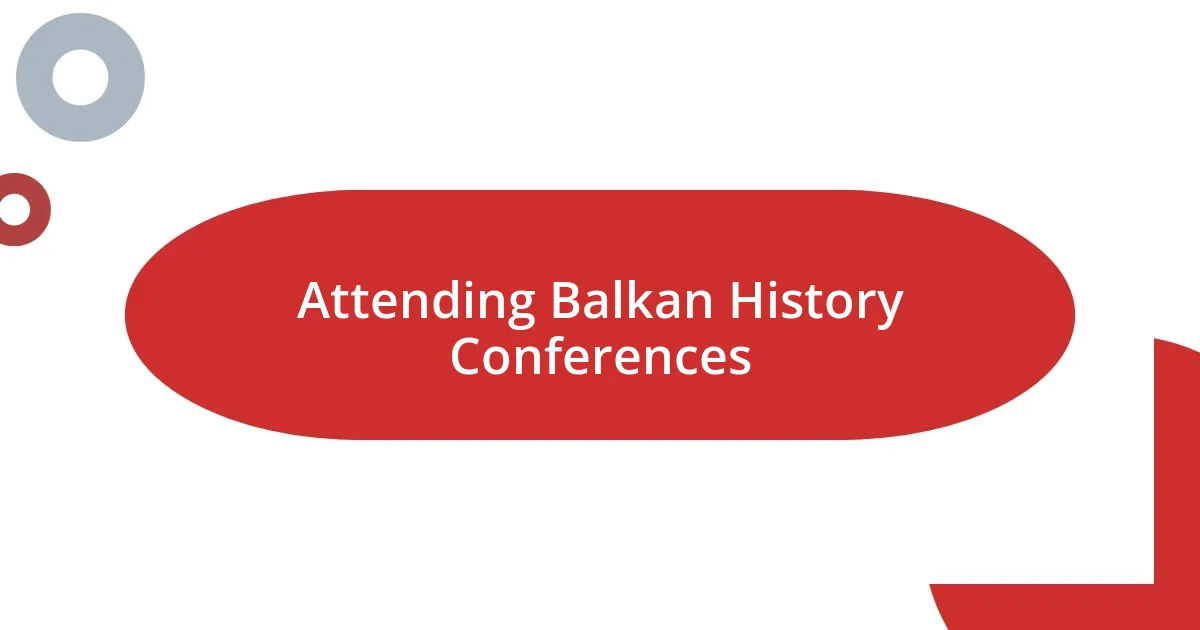
Attending Balkan History Conferences
Attending Balkan history conferences has been a pivotal experience in my academic journey. I vividly recall my first conference where I listened to a presentation on the Balkan Wars. The speaker’s passion was palpable, and I felt an electric connection to the stories of resilience and struggle. Have you ever been in a room where the air feels thick with shared history? That’s what it was like for me, surrounded by people who truly understood the weight of the narratives being discussed.
At one conference, I found myself engrossed in a panel discussing the impact of folklore on modern identity. A panelist shared a childhood story about how her grandmother’s tales shaped her understanding of her heritage. This struck a chord with me; I realized that history isn’t just found in dusty books but in the warm recollections of our loved ones. Have you ever reflected on how a simple story from your past can influence your identity today? For me, it was a profound moment of connection that crystallized the importance of personal anecdotes in historical discourse.
Moreover, networking at these events opened doors I never expected. I struck up a conversation over coffee with a historian who specialized in the Yugoslav era. We exchanged insights, and she encouraged me to pursue a research topic I had been considering for ages. That one conversation not only fueled my passion but also reinforced my belief that genuine connections with historians are invaluable. They can elevate your understanding and guide your academic path in ways you might not foresee. Isn’t it amazing how a chance encounter can lead to such transformative growth?
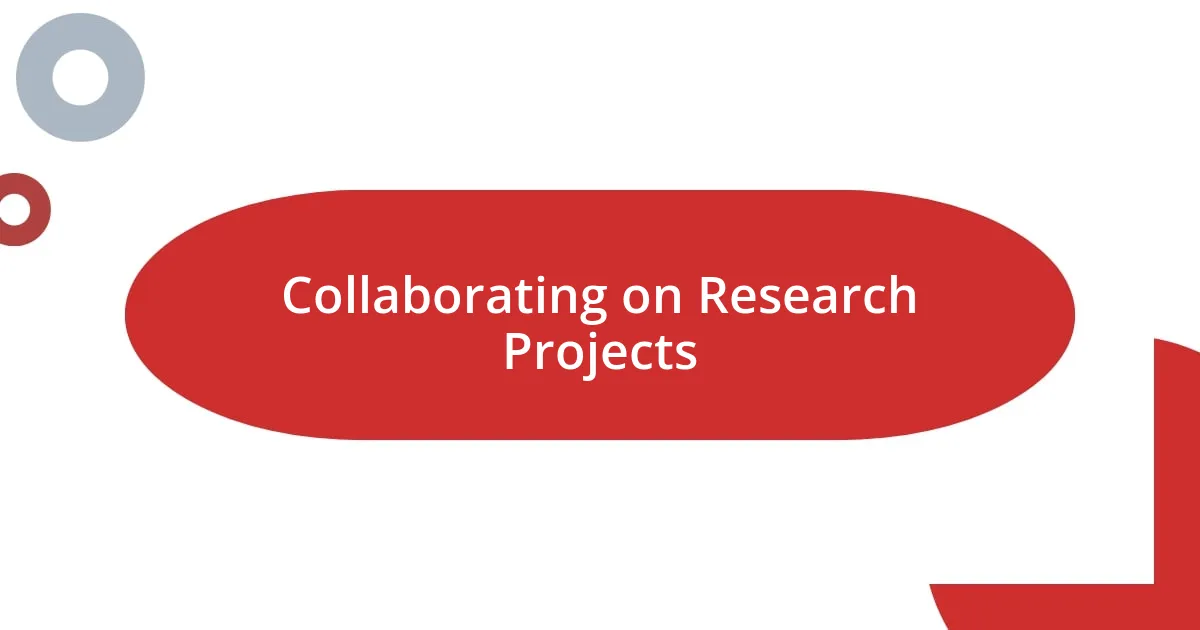
Collaborating on Research Projects
Connecting through collaborative research projects with Balkan historians has really shaped my understanding of the field. I remember when I joined a team analyzing post-war socio-political changes. The thrill of working alongside experts, each bringing unique perspectives, was both exhilarating and enlightening. It made me realize that collective effort often yields deeper insights than solitary research can offer. Have you ever experienced that “aha” moment when someone else sees things from a completely different angle?
In another project, we dove headfirst into various archival materials, sifting through documents that held layers of history. Each meeting felt like uncovering a treasure chest of narratives waiting to be shared. One day, a colleague shared a rare photograph from the early 20th century that sparked a passionate discussion on its implications. It was incredible how one image could connect us to our ancestors’ struggles and triumphs. Doesn’t it make you ponder the stories hidden in the archives, waiting for a curious mind to unravel them?
Ultimately, working on these projects taught me that collaboration is like a dance; it requires harmony and trust. I recall a disagreement within our team about how to interpret a certain historical event. Instead of causing division, it opened up a respectful dialogue that enriched our analysis. This taught me that it’s okay to have differing opinions — in fact, it can lead to an even richer understanding of the past. Isn’t that the essence of historical inquiry? We grow by challenging each other and embracing the complexities of the narratives we study.
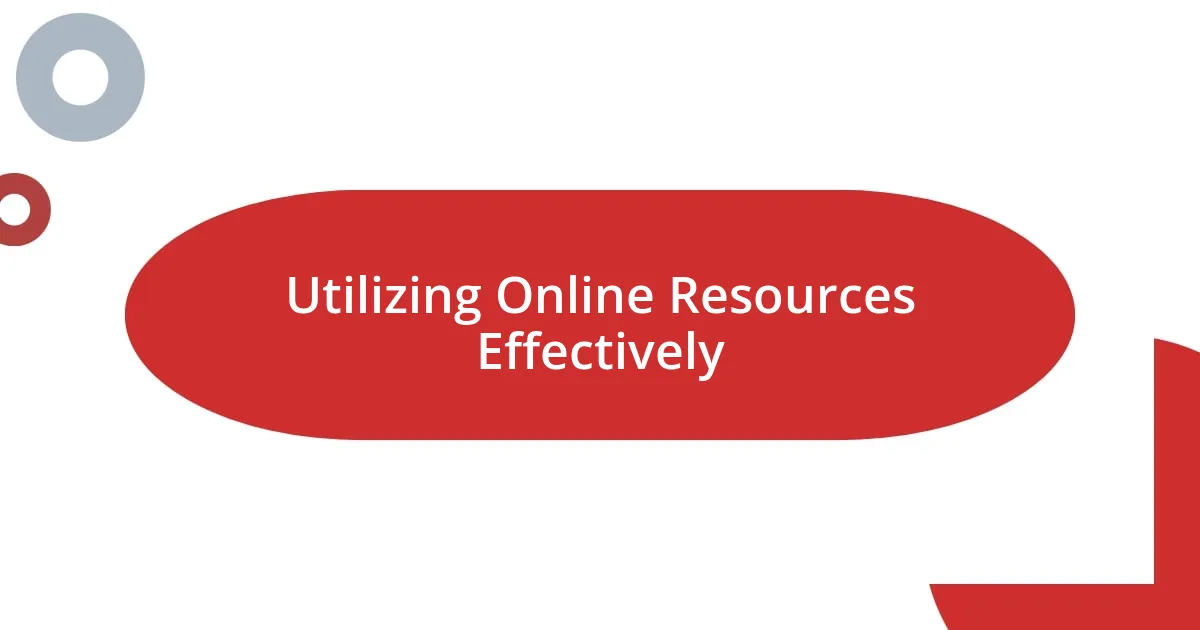
Utilizing Online Resources Effectively
Exploring online resources effectively has transformed my approach to Balkan history. I still remember the night I stumbled upon a digital archive packed with documents from the Ottoman period. As I clicked through the pages, I was struck by the rawness of the letters, transporting me to another time. Have you ever felt like you were reading someone’s heart and soul through their words? This kind of experience illustrates just how powerful online resources can be in making historical figures feel real.
Navigating scholarly databases, I’ve often found myself lost in a sea of articles and papers. One evening, I dedicated a few hours to researching a little-known figure in the Balkan struggle for independence. I used boolean search operators to narrow down my results—a smart tactic that I learned from a mentor. It was a game-changer! By combining keywords strategically, I unearthed gem after gem, leading to connections I hadn’t initially considered. Have you ever discovered something that made you feel as if you’d just opened a door to a hidden room in a familiar house?
Online forums and social media have also played a crucial role in my research. Participating in a dedicated Facebook group for Balkan historians allowed me to pose questions directly to experts. I remember nervously posting about a recent theory I was working on. To my surprise, several historians chimed in with encouragement and additional resources. That simple act of sharing sparked enlightening discussions that shaped my perspective. Isn’t it fascinating how digital platforms can foster community and collaboration, making the often solitary pursuit of research feel a little less lonely?
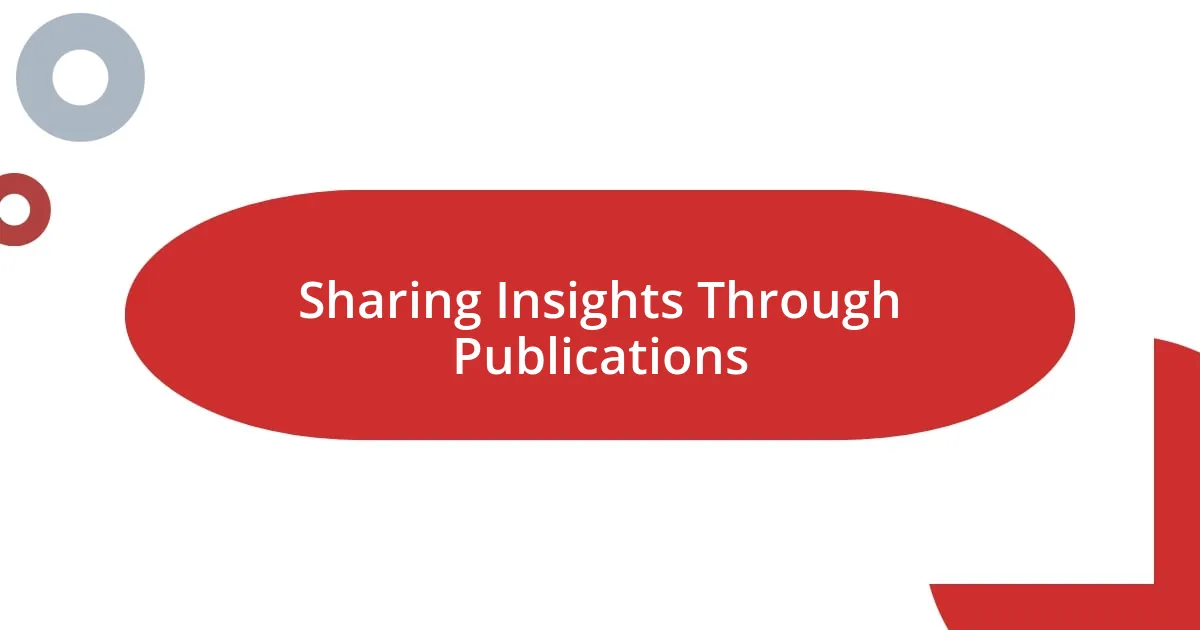
Sharing Insights Through Publications
Through my journey in connecting with Balkan historians, I’ve found that sharing insights through publications can be truly rewarding. I vividly recall the excitement of my first co-authored article, where we delved into interethnic relations during the 20th century. It was fascinating to merge our distinct viewpoints into a cohesive narrative, illustrating how multiple voices can create a richer tapestry of history. Have you ever realized how collaboration can transform a mere idea into something impactful?
I’ve also learned the importance of feedback in the publishing process. When I submitted a draft to a seasoned colleague, their honest critique helped me see gaps I had overlooked. I remember feeling vulnerable yet grateful, as their insights pushed the piece to a higher level. Isn’t it interesting how constructive criticism can be a pathway to personal growth and professional development?
Attending conferences has also opened doors for sharing insights through publications. One particular event sticks in my mind where I presented my research on gender roles in Balkan revolutions. The lively discussions that followed my talk led to unexpected collaborations, paving the way for future publications. It’s remarkable how a single conversation can catapult you into new ideas and partnerships, isn’t it?
